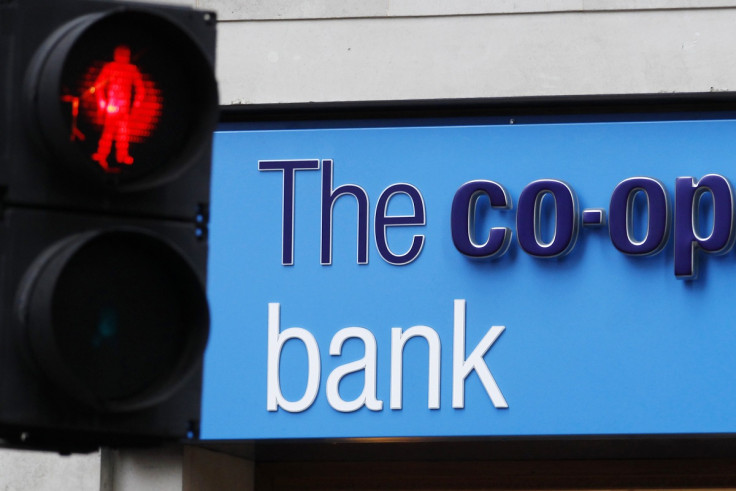Co-op Chief Euan Sutherland to Receive £3.7m Pay Bonanza at Struggling Bank

The Co-operative Group will pay its chief executive Euan Sutherland £3.7m for his first year in the job, despite the bank's recent near financial collapse and other iniquitous scandals.
The bank will also hike up the salaries of seven other senior executives to between £500,000 and £900,000, while preparing for a possible 5000 redundancies.
The Co-op's chairman, Ursula Lidbetter, confirmed that newly installed CEO Sutherland will receive a base salary of £1.5m for 2014, a £1.5m retention payment. Along with pension contributions and compensation for buying him out of his previous contract, Sutherland will receive £3.66m this year.
This is nearly three times more than his predecessor received.
Details concerning the proposed pay hikes marked "Private & Confidential" and prepared for the group remuneration and appointments committee, were seen by the Observer.
The documents refer to the significant problems the Co-op's new executive team has inherited. They suggest that the salary packages for chief executive Euan Sutherland and his fellow directors are necessary because "the [Co-op's] executive agenda is possibly the most complex one facing a large business in the country today".
"Last year, The Co-operative Group faced the biggest crisis in its 150-year history," said Lidbetter, in a media statement.
"It is against that backdrop that we recruited Sutherland and a top team with the skills and experience needed at this crucial stage in our history, reflecting the necessity for change.
"[The Co-op's planned increase of executives' salaries compared with the] pay of their predecessors reflected the greater commercial, management and turnaround experience they are bringing to bear".
Lidbetter added that the pay packages were "in the middle of a range of comparable companies".
Meanwhile, Sutherland said on the company's Facebook page that while the remuneration report is yet to be finalised, "we seem to have an individual, or individuals, determined to undermine me personally."
"We appear to have disaffected people who are determined to make life difficult and embarrassing for The Co-operative at a time when what we need most are professionalism and loyalty to the business," he added.
Meanwhile, chief operating officer Richard Pennycook will receive a £900,000 salary and a retention payment of the same amount, while six other executives will be paid between £500,000 and £650,000 each as their basic salaries.
The Co-op Bank is one of UK's smallest lenders with 6.5 million customers and a 1.5% share of the current account market. However it is a household name in Britain, as the wider group includes supermarkets, funeral services and pharmacies.
Trouble started in May 2013, after the Co-op Bank's head of banking Barry Tootell resigned after rating agency Moody's suggested that the British government may have to bailout the lender.
Moody's slashed the bank's debt rating to "junk" status, due to concerns that the lender had a black hole in its balance sheet.
On 22 November, police arrested former chairman Paul Flowers, as part of an investigation into the supply of illegal drugs. He has since been bailed.
In January 2013, the Co-op unveiled the first set of details surrounding its benchmark internal review.
Lord Myners, who will receive a token £1 salary for his work as chairman of the Co-op's internal governance review, will be scrutinising the ethical organisation's democratic systems and control structures within two phases.
During the first phase, the review will focus primarily on the development of recommendations for strengthening the board structure, composition, working processes and board policies, following the scandal surrounding its former chairman Paul Flowers, that has allegedly been embroiled in taking hard drugs and engaging in paid-for sex orgies.
Myners said the review board will report on findings and recommendations by April 2014.
In Phase 2 of the review, expected to be completed in late 2014, recommendations will be developed for strengthening links with members, as well as with other customers of the group and its employees, in a bid to quell any concerns over the bank's stability.
© Copyright IBTimes 2024. All rights reserved.






